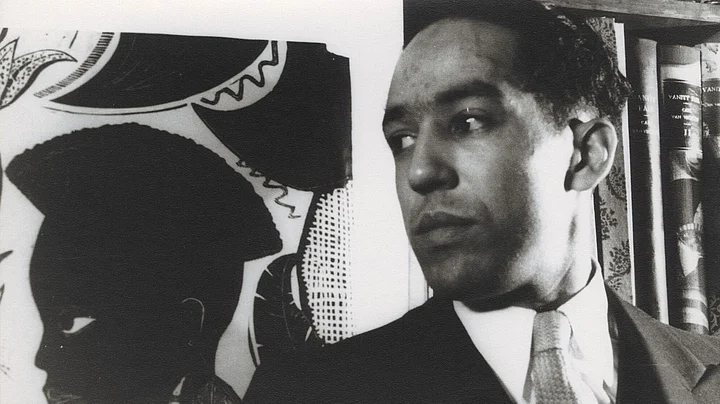When I say the name James Mercer Langston Hughes, I want you to slow the sands of time, to transport back to an era where "the negro was in vogue". Dramatic much? Now, this might sound offensive today but nearly a century ago when Hughes proffered the aforementioned catchphrase, it turned nearly every American head around. He warbled ‘I, Too, Sing America’ and every voice followed in chorus.
Hughes donned many caps – of a poet, novelist, playwright, columnist, and an assertive social activist – he became a writer at a very young age, writing his first piece of jazz poetry in high school itself.
For every poet enthusiast who’s wondering – yes, here’s the man who was one of the former innovators of jazz poetry. Besides leading the renowned Harlem Renaissance, Hughes was most popular for standing as a precursor of the Black Arts Movement in America.
The Man and the Times
Born on 1 February 1901, Hughes would have turned 121 years old this year. Hailing from Joplin, Missouri, the prolific writer was an American in every sense and yet discriminated against for the colour of his skin.
His dream, yearning to be treated as an equal, echoes in a lot of his poetry. Through his perseverance, he disproved the idea that patriotism was limited by race.
(I am the darker brother.
They send me to eat in the kitchen
When company comes,
But I laugh,
And eat well,
And grow strong.)
However, Hughes never showed a violent side. During the civil right movement between 1942 and 1962, Hughes wrote an extensive weekly column in The Chicago Defender, a leading black newspaper of the time.
Books meant a beautiful escape for the man who spent most of his childhood in Kansas. In his 1940 autobiography The Big Sea, he penned, "I was unhappy for a long time, and very lonesome, living with my grandmother. Then it was that books began to happen to me, and I began to believe in nothing but books and the wonderful world in books—where if people suffered, they suffered in beautiful language, not in monosyllables, as we did in Kansas."
Like many African-Americans, the poet carried a complex ancestry and belonged to a mixed lineage. Both his paternal great-grandmothers were slaves, like many unfortunate Africans of the age, while both his paternal great-grandfathers came from a white lineage of slave owners in Kentucky.
'The Negro Was In Vogue': The Harlem Renaissance
"I was a victim of a stereotype. There were only two of us Negro kids in the whole class and our English teacher was always stressing the importance of rhythm in poetry. Well, everyone knows, except us, that all Negroes have rhythm, so they elected me as class poet."Langston Hughes
When I tell you the roots of the distinction went deep, I have tons of instances to state. Hughes dropped out of college because of the prevalent racial prejudice among teachers and students. He was drawn more to the African-American people and the neighbourhood of Harlem.
And just like that, Harlem became a centre of vibrant cultural life, the seed for the Black Arts Movement. The Harlem Renaissance in the 1920s was led by him and his contemporaries Wallace Thurman, Claude Mckay, Zora Neale Hurston, Countee Cullen, Aaron Douglas, and Richard Bruce Nugent.
Numerous works of his, poetry and fiction, depicted the lives – or the unfiltered, real lives – of the black working class in the lower social-economic strata in America. They also collectively worked on a short-lived magazine called Fire!! Devoted to Younger Negro Artists.
Together, they criticised the prejudices in the community based on skin colour. Hughes wrote their manifesto, 'The Negro Artist and the Racial Mountain'.
"The younger Negro artists who create now intend to express our individual dark-skinned selves without fear or shame. If white people are pleased we are glad. If they are not, it doesn't matter. We know we are beautiful. And ugly, too. The tom-tom cries, and the tom-tom laughs. If colored people are pleased we are glad. If they are not, their displeasure doesn't matter either. We build our temples for tomorrow, strong as we know how, and we stand on top of the mountain free within ourselves."Langston Hughes
Where Are We 121 Years After Harlem?
"My seeking has been to explain and illuminate the Negro condition in America and obliquely that of all human kind."Langston Hughes
While Hughes was one of the harbingers of the Black movement, emphatically confronting racial stereotypes and prejudiced social conditions, his legacy is still in the process of being carried forward.
Even though we have come a long way, we find instances of racial discrimination still happening around us. George Floyd's murder in 2020 sparked widespread outrage throughout the world. It shook every person's core thinking of how the journey taken was so long, and yet they were pulled and thrown back in time. It made everyone wonder if the efforts of our predecessors like Hughes just went into the drain. However, the crime led to the movement of 'Black Lives Matter', that created awareness.
It gave everyone a chance to express their anger and frustration through art. Artists and artistes all around the world took to their individual art forms to portray black lives that mattered and will also do.
People continue to learn from the legacy of the people's poet, who sought in the early 20th Century to re-educate the masses by elevating the theory of black aesthetic to reality, and so many others who spent their lives to the cause of the revolution.
Here we are, 121 years later, still learning and unlearning, still growing.
